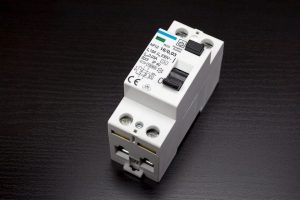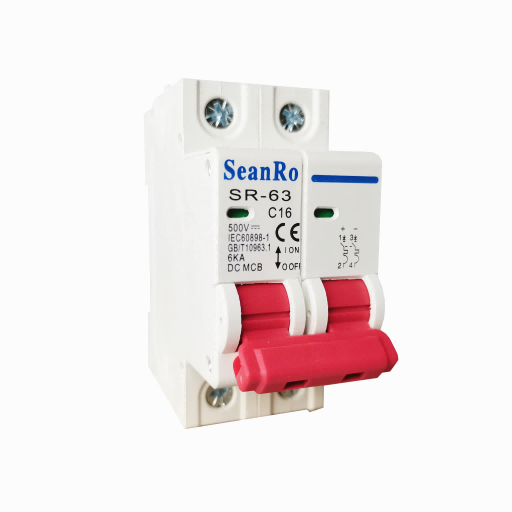Last Updated on October 22, 2023 by Kevin Chen
Image source: Pinterest
Probably you have noticed your circuit breaker is overheating, or you have heard cases of heated circuit breakers. What are the causes and when should you be concerned about the rising temperatures of the circuit breakers?
Why do circuit breakers get warm/hot?
Circuit breakers are designed to safely interrupt high current flow. When a fault condition occurs, the circuit breaker interrupts the flow of electricity, preventing damage to the electrical equipment and resulting in fire, electrocution, and property damage.
The amount of power that a circuit breaker can interrupt depends on the rating of the breaker. In residential or commercial applications, common circuit breakers have ratings from 15A to 200A. Also, depending on where you live in North America or other parts of the world, your electrical system may be 110V, 220V or higher.
The higher the rated current for a circuit breaker (e.g., 200A), the more power it can interrupt and hence generate more heat when conducting current through it during a fault condition. Circuit breakers are designed with thermal overload protection which limits their maximum operating temperature so they do not overheat and fail unexpectedly while protecting your home or business from fire and related property damage.
How hot is too hot?
Most circuit breakers have a rated maximum operating temperature of 140 degrees Fahrenheit/ 60 degrees Celsius. If your circuit breaker hits this limit and does not trip, chances are you have a faulty circuit breaker.
Now you know when to be alarmed when your circuit breaker gets too hot beyond what is expected.
Does the heat on the circuit breaker vary?
It is important to understand that overheating is relative when talking about circuit breakers; it depends on how long they have been overheated and what type of device they are connected to (e.g., an electric water heater) as well as how many other things are connected to that circuit breaker (e.g., lights).
It also depends on what kind of design your house has: if you have an older house with aluminum wiring instead of copper wiring it will take longer for a circuit breaker to overheat and may not be able to handle the same amount of load.
For example, if you have a circuit breaker connected to an electric water heater that is rated for 15A, it will produce more heat than a circuit breaker connected to a light fixture that is rated for 15A. And if you have multiple light fixtures on one circuit, they will draw more current and therefore generate more heat than one light fixture on the same circuit. The same goes for outlets and kitchen appliances — they will draw more current when in use and therefore generate more heat when connected to the same circuit.
Before you judge..
Check the state of the circuit breaker. Maybe there is something that makes it get hotter than normal. Check out the terminals that are connected to the wires. The heating could have been caused by loose connections.
Also, check out the condition of the wire or wires. If it is damaged, then the circuit breaker will get hot easily.
Also, check out if there are any loose connections. If there are, then try tightening them.
If you have an older home with aluminum wiring instead of copper wiring, then it could have been caused by the heating up and melting of the aluminum wire causing a short circuit. The solution to this will be to replace the wires with copper wires.
That’s why you should always check your circuit breakers before you judge them to be broken or bad.
How to check circuit breaker temperature
Image source Alibaba
We have just stated the heating redline for the circuit breaker. How do I know that my breaker is approaching this redline?
There are various easy methods of finding out a circuit breaker’s temperature.
One method is using an ordinary thermometer.
Just place the thermometer’s probe on the circuit breaker. You will be able to record the actual temperature readings of the breaker.
If the temperature is higher than normal, then it could be a sign that your circuit breaker is going to fail soon.
Another method of checking out your circuit breakers’ temperature is by using a thermal scanner. This device is specifically used to detect the temperature of a circuit breaker.
The thermal scanner will emit a beam of infrared light at the circuit breaker. The infrared light will then reflect off the circuit breaker giving off a temperature reading.
If you have none of these simple tools? You can use the back of your hand to feel the temperature of the circuit breaker. Just be super cautious to avoid getting burned by the hot devices.
Dangers of using a hot circuit breaker
You have found out that your circuit breaker is constantly getting hot. What are the consequences of using it?
First, it can be very dangerous to others. A circuit breaker will eventually fail if it is constantly getting hot. It will not be able to trip in case of a current overload.
Second, it is a fire hazard.
The circuit breaker will overheat and start a fire at your home or office. The fire can spread quickly and cause more damage than you can imagine.
If the circuit breaker is not replaced in time, then there is a possibility that you will lose power completely in your home or office.
Buy quality circuit breaker
One way of eliminating this problem once and for good is to replace your old circuit breaker with a new one. Not just any circuit breaker but a high-quality one.
Low-quality breakers tend to be affected by a myriad of mechanical issues which can make them overheat.
So, buying a quality circuit breaker for your home or office is a good investment.
You should also make sure to have it installed by a professional so that it won’t get damaged in the process.
And in ace you want to buy circuit breakers in China, let us be your partner. We are a reputable sourcing agent for electronic components in China.
If you want to find more Electronic Components Distributors, please check out the following articles:
Electronic Components Distributors In the USA
Electronic Components Distributors In UK
Electronic Components Distributors In China
Electronic Components Distributors In India
Electronic Components Distributors In Singapore
Electronic Components Distributors In Malaysia
Electronic Components Distributors In Vietnam
Electronic Components Distributors In South Korea
- Where to buy IC chips? The Best Guide? - March 26, 2024
- Breaking Down Barriers: Overcoming Obstacles in Cross-Border Electronic Component Trade - March 4, 2024
- Everything You Need to Know About Amplifier IC Chips - March 4, 2024






